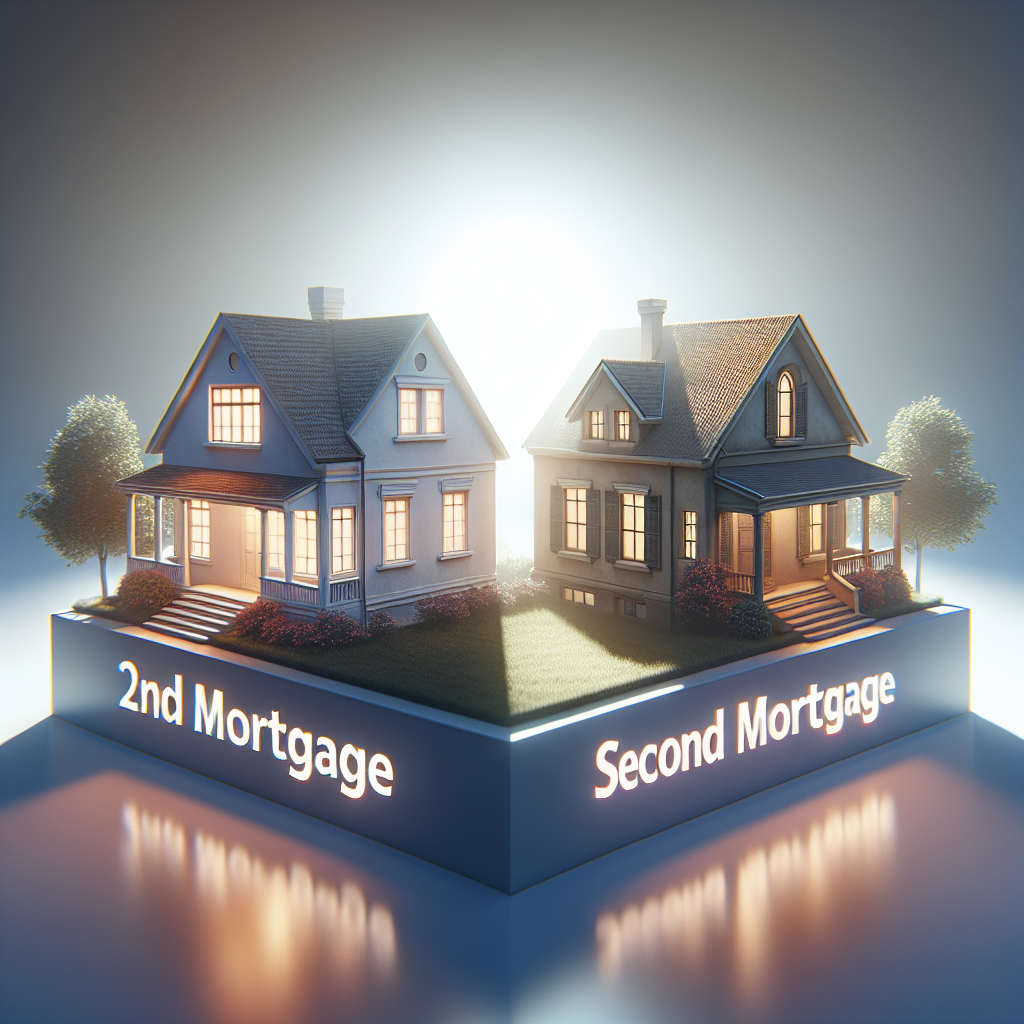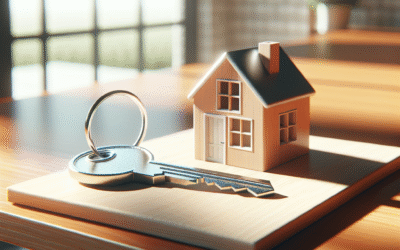What is a 2nd Mortgage?
Definition and Explanation
A 2nd mortgage is a type of loan that allows homeowners to borrow against the equity in their property, which is the difference between the home’s market value and the outstanding mortgage balance. Essentially, it is a loan taken out in addition to the primary mortgage. The 2nd mortgage is secured by the home, meaning that if the borrower fails to make payments, the lender can potentially foreclose on the property.
Types of 2nd Mortgages
There are primarily two types of 2nd mortgages:
- Home Equity Loan: This loan provides a lump sum amount and is typically fixed-rate. Borrowers repay the loan over a set term, often with monthly payments.
- Home Equity Line of Credit (HELOC): A HELOC offers a revolving credit line, similar to a credit card. Borrowers can draw funds as needed, and they often have variable interest rates.
Understanding the differences between these two options is essential for homeowners considering leveraging their home’s equity.
Benefits of 2nd Mortgages
Access to Cash
One of the main advantages of a 2nd mortgage is the access to cash it provides. Homeowners can use the funds for various purposes, such as:
- Home renovations
- Debt consolidation
- Education expenses
- Medical bills
- Investment opportunities
This flexibility allows homeowners to address financial needs without having to sell their homes.
Lower Interest Rates
2nd mortgages often have lower interest rates compared to unsecured loans. This can be particularly beneficial for individuals looking to consolidate high-interest debts. The secured nature of a 2nd mortgage means lenders may offer more favorable terms, making it a smart financial choice for many homeowners.
Risks Associated with 2nd Mortgages
Potential for Foreclosure
While a 2nd mortgage can provide necessary funds, it also comes with risks. If the borrower fails to make payments, the lender can initiate foreclosure proceedings. This risk is heightened when the borrower has both a first and a second mortgage, as the lender of the 2nd mortgage may be in a more precarious position during foreclosure.
Impact on Credit Score
Taking out a 2nd mortgage can affect your credit score. When you apply for the loan, lenders will perform a hard inquiry, which may temporarily lower your score. Additionally, if you miss payments, it can further damage your credit rating. It’s crucial for borrowers to ensure they can manage the additional debt responsibly.
How to Qualify for a 2nd Mortgage
Credit Score Requirements
Lenders typically require a minimum credit score to qualify for a 2nd mortgage. While this can vary by lender, a score of at least 620 is often needed. However, a higher score can improve your chances of approval and may lead to better interest rates.
Income and Debt-to-Income Ratio
Lenders also assess your income and debt-to-income (DTI) ratio. The DTI ratio compares your monthly debt payments to your gross monthly income. Most lenders prefer a DTI ratio of 43% or lower when considering applicants for a 2nd mortgage.
2nd Mortgages vs. Home Equity Loans
Key Differences
While both a 2nd mortgage and a home equity loan are options for accessing home equity, they differ in structure:
- 2nd Mortgage: Can be a lump sum or a revolving credit line (HELOC). The repayment terms can vary widely.
- Home Equity Loan: Generally fixed-rate with fixed monthly payments.
Understanding these distinctions can help homeowners choose the right option based on their financial needs.
When to Choose Each Option
A 2nd mortgage might be more suitable for those who need a large sum of money upfront, such as for home renovations. On the other hand, a HELOC is ideal for those who want flexibility and may not need all the funds at once.
The Process of Obtaining a 2nd Mortgage
Application Steps
The process of obtaining a 2nd mortgage involves several steps:
- Assess Your Financial Situation: Understand your equity, credit score, and financial needs.
- Shop for Lenders: Compare interest rates and terms from various lenders.
- Submit an Application: Provide necessary documentation and complete the application process.
- Home Appraisal: The lender will likely require an appraisal to determine your home’s current value.
- Close the Loan: If approved, you will finalize the loan and receive your funds.
Documentation Needed
When applying for a 2nd mortgage, be prepared to provide:
- Proof of income (pay stubs, tax returns)
- Information on existing debts
- Details about your primary mortgage
- Documentation regarding your home (deed, title)
Having these documents ready can streamline the application process.
Frequently Asked Questions About 2nd Mortgages
What is a 2nd mortgage?
A 2nd mortgage is a loan taken out against the equity of your home, in addition to your primary mortgage.
How can I use the money from a 2nd mortgage?
Homeowners can use funds from a 2nd mortgage for home improvements, debt consolidation, education costs, or other expenses.
What are the risks of a 2nd mortgage?
The primary risks include potential foreclosure if payments are missed and a possible negative impact on your credit score.
How do I qualify for a 2nd mortgage?
To qualify, you typically need a minimum credit score, sufficient income, and a favorable debt-to-income ratio.
Is a 2nd mortgage the same as a home equity loan?
No, while both allow homeowners to access equity, a 2nd mortgage can be a lump sum or line of credit, whereas a home equity loan is generally a fixed-rate loan.
Can I get a 2nd mortgage with bad credit?
It may be more challenging, but some lenders offer options for borrowers with lower credit scores, though the terms may not be as favorable.
Conclusion on 2nd Mortgages
Summary of Key Points
A 2nd mortgage can be a valuable financial tool for homeowners looking to leverage their home equity. Understanding the different types, benefits, and risks is essential before making a decision. Additionally, being aware of the qualification criteria and application process can help streamline your experience.
Final Thoughts
If you’re considering a 2nd mortgage, take the time to evaluate your financial situation and consult with a professional to ensure it aligns with your long-term goals. With careful planning, a 2nd mortgage can provide the necessary funding to achieve your financial aspirations.
For more detailed information, check out resources from the Consumer Financial Protection Bureau here.





0 Comments